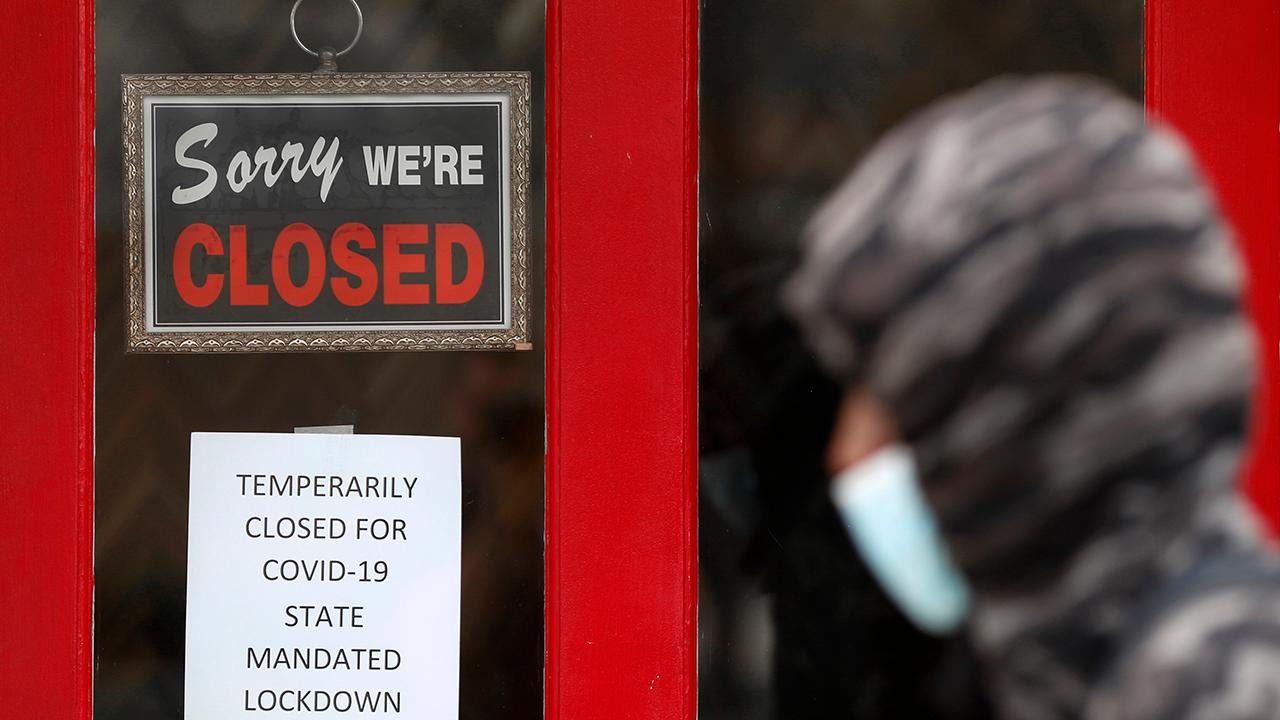Record jobless claims mean we must heed these lessons from the Great Recession
The drain on states’ unemployment insurance trust funds has been accelerating and it's alarming
With another 2.4 million initial unemployment claims filed this past week, the focus from federal and state governments should be on two main issues surrounding sustained unemployment: unemployment trust fund = solvency and sustained unemployment.
To understand why these are concerning, we needn't look any further than The Great Recession.
BACKLOGS, SECOND WAVE OF LAYOFFS KEEPING US WEEKLY JOBLESS CLAIMS HIGH
As recovery efforts increased, states struggled to recapitalize their unemployment trust funds. Ultimately they had to make hard decisions regarding budget and program cuts and many borrowed from future revenues to adequately prop up their account balances.
As of February, some 10 years later, 22 U.S. states’ unemployment trust balances were still below the recommended solvency standard, according to the U.S. Department of Labor’s State Unemployment Trust Solvency Report.
ANALYSIS RAISES QUESTIONS ABOUT CORONAVIRUS SHUTDOWN'S EFFECTIVENESS
This solvency standard helps states prepare for the unemployment insurance payouts of an average recession scenario.
Well, this is clearly not an average recession. Now that 35 million workers have been temporarily or permanently displaced from work, the drain on states’ unemployment insurance trust funds has been accelerating and it's alarming.
Just look at California’s severely underfunded unemployment trust. Prior to COVID-19, they had one of the most underfunded trusts in the union.
Through the first half of April, California’s account balance has declined by an extraordinary 40 percent. During that same time Ohio and Connecticut saw their balances decline by 31 percent, Indiana’s by 14 percent and New York’s by an astronomical 48 percent.
THESE KINDS OF CARS SELLING FOR CHEAP ON MEMORIAL DAY WEEKEND
Whereas, well-funded trusts like Michigan and Alaska saw declines of 8 percent and 3 percent respectively. Considering that in January Michigan’s balance was growing, these are still staggering losses.
For now, states’ funds will remain solvent, but many will have to start borrowing from the U.S. Treasury to make their payments.
As of May 19th, nine states have already borrowed from the U.S. Treasury to supplement their trust funds. And as expected, the concern right now is solvency, but we shouldn’t forget the lessons from The Great Recession. Not if, but when the recovery begins, states will have to start making tough decisions regarding budget cuts and program spending.
GET FOX BUSINESS ON THE GO BY CLICKING HERE
States will find that the longer workers remain unemployed, and concerns about temporary unemployment becoming permanent ring true, employee networks will dry up and their skills will get rusty.
Although it’s too soon to know now, workers could eventually exhaust unemployment insurance and begin to drop out of the labor force.
We may even see another jobless recovery, another lesson from The Great Recession.
It will likely take another 10 years of difficult decisions and mounting opportunity costs to recapitalize unemployment trust balances.
If the federal and state government are not aggressive enough in combating unemployment, we will continue to have unemployment trust solvency issues, difficult state budget decisions and even permanently higher levels of unemployment.
The time to act is now. The time to help our future is now.
Economist Jason Reed is assistant chair and teaching professor of finance at the University of Notre Dame's Mendoza College of Business.




















